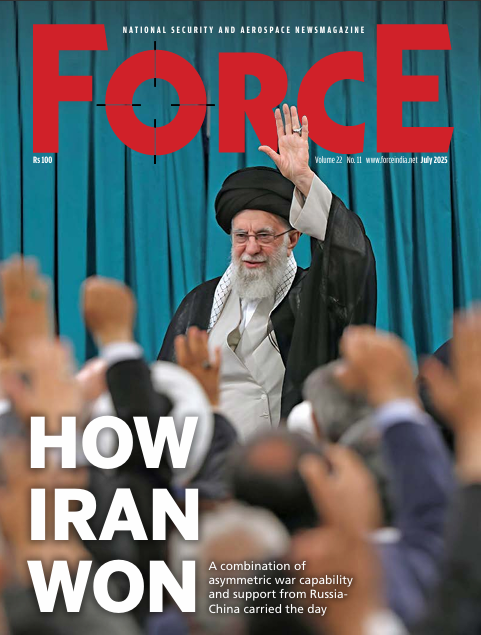Money Over Matter | Illusionary Gains
 Maj. Gen. Mrinal Suman (retd)
Maj. Gen. Mrinal Suman (retd)
No other facet of the Indian procurement policy has been subjected to as intense a scrutiny as the concept of offsets. India announced its intent to demand offsets against defence procurements in 2005. The first offset contract was signed in 2007. Dozens of offset agreements have since been signed and many offset programmes are currently under execution. The policy has been subjected to several major revisions. However, the debate about the cost-effectiveness and expediency of offsets continues unabated.
Recently, while addressing an international conference on ‘Energising the Indian Aerospace Industry’, Pratyush Kumar, President Boeing India, counselled, “Abolish offsets. It hasn’t delivered. It costs money”. He was not alone in faulting offsets. Nikhil Khanna, Managing Director, BAE Systems, termed offsets as the ‘Achilles Heel’ of procurement. Both were doing some plain speaking. Their advice must be given due consideration as they have had first-hand experience of navigating their companies through the morass of India’s convoluted offset policy. Both the distinguished speakers were alluding to the failure of offsets to boost local production. Their observations raise fundamental questions regarding the efficacy of offsets in ushering in an era of technological excellence and energising the indigenous defence industry.
Offsets can generally be termed as formal arrangements of trade with inbuilt contractual obligations wherein a foreign supplier undertakes specified programmes with a view to compensating the buyer regarding his procurement expenditure and outflow of resources. In other words, the supplier undertakes measures to generate benefits for the economy of the buyer country. Offsets can also be called as trade arrangements with reciprocity clauses to provide some sort of relief to the buyer to help him pay for the purchases. The negotiated package consists of the primary contract and the compensatory offset contract.
The World Trade Organisation (WTO) considers offsets to be market-distorting and contrary to ‘free and fair’ trade practices. Yet, offsets have become such an integral part of the international arms trade environment that over 130 countries are demanding them. Offsets do not come for free as foreign vendors have to incur additional expenditure to fulfil them. Hence, they mark up their commercial bids to absorb offset overhead costs. It is estimated that offsets up to 50 per cent inflate the cost of the main contract by close to 10 per cent. Similarly, 100 and 200 per cent offsets may result in cost escalation by 15 and 20 per cent respectively.
The Indian Conundrum
Despite repeated assertions in quest of self-reliance, India’s dependence on imported defence equipment continues to be above 70 per cent. India’s defence industry is in a pitiable state and the country has acquired the dubious distinction of being the largest buyer of conventional weapons in the world. Self-reliance continues to be a pipe dream.
The present government has declared ‘Make in India’ mission to be the cornerstone of its nation-building initiative and defence manufacturing has rightly been identified as one of the key sectors. Along with many other initiatives, the government expected offsets to provide the necessary stimulus to the indigenous defence industry. Unfortunately, all hopes have been belied. Experience of the past few years has been highly discouraging. There has been no progress whatsoever towards the development of a vibrant defence industrial base and there has been no technology infusion at all.

Vice president, Boeing, Pratyush Kumar addressing the attendees at the 13th annual conference on ‘Energising the Indian Aerospace Industry
According to the reports submitted by the Comptroller and Auditor General (CAG), ‘benefits of offsets could not be reaped to the extent envisaged due to the lack of uniformity in interpretation of the extant offset provisions; acceptance of foreign investment in kind with no value addition; select
Subscribe To Force
Fuel Fearless Journalism with Your Yearly Subscription
SUBSCRIBE NOW
We don’t tell you how to do your job…
But we put the environment in which you do your job in perspective, so that when you step out you do so with the complete picture.








